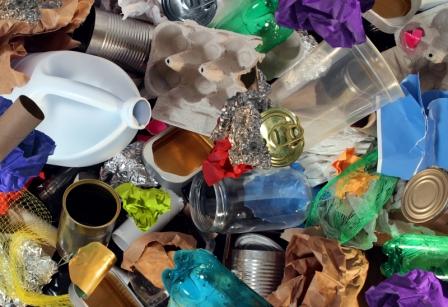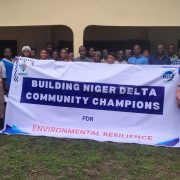Nigeria Not a Dumping Ground – HOMEF Raises Alarm over plans to import waste from EU

By Ekemini Simon
Health of Mother Earth Foundation (HOMEF) has kicked against the plan of the Nigerian government to import waste it describes as non-hazardous into the country.
Nigeria and 23 other non-members of the Organisation for Economic Cooperation and Development countries had recently sought inclusion in the list of nations eligible to import non-hazardous waste from the European Union.
The “non-hazardous waste”, which accounts for 95.6 per cent of solid waste produced in Europe, includes municipal waste such as packaging, clothing, bottles, and plastics, as well as demolition materials like concrete, bricks, stones, and food waste.
In reaction to the development, HOMEF in a press release described the plan of the Nigerian government to import the “non-hazardous waste’ as ill-conceived, vexatious, painful and rude shock especially at a time of widespread ecological challenges.
HOMEF said that even wastes certified as non-hazardous are often hazardous – containing traces of heavy metals and other dangerous elements.
The Organization said it is clear that rich countries commodify waste and make it appeal to the appetites of poorer countries that are seeking foreign exchange by all means thus the EU could report that €18.5 billion worth of EU waste was exported in 2023.
HOMEF said what the impacts of those wastes have been and will continue to be in the countries where they were exported is a question that the trade merchants will never answer.
The release added “The EU seem to align with the assertion of Lawrence Summers, World Bank Chief Economist in 1991, who wrote that Africa is hugely under polluted and that it makes economic sense to dump wastes here. In his memo, he said, “Just between you and me, shouldn’t the World Bank encourage more migration of the dirty industries to the LDCs [Least Developed Countries]? A given amount of health-impairing pollution should be done in the country with the lowest cost and the country with the lowest wages. I think the economic logic behind dumping a load of toxic waste in the lowest wage country is impeccable, and we should face up to that.” In a world that is in the grip of extreme geopolitical distortions, the shameful truth is that the high consumption nations are happy to offload their wastes on zones regarded as suitable for nothing except to be sacrificed as refuse dumps.”
HOMEF while referencing the willful dumping of toxic waste in Koko, Delta State, Nigeria, in 1988 said these wastes were labelled “non-hazardous” and branded as “fertilisers”.
The organization pointed out that while the labelling was to portray no harm, the actual content was indeed harmful, with significant impacts and contamination on air, water and land.
The organization cited the Trafigura case of waste dumping in Côte d’Ivoire (after several unsuccessful efforts to dump wastes in several other countries) for an induced fee of about $17,000 with the help of local collaborators in the name of waste management companies explaining that the hazardous nature of the wastes was concealed and became known only after other countries refused.
HOMEF said they see the request by Nigerian Government to be included among countries that receive exported waste from European Union as a ploy to woo the country into obnoxious systemic legal waste colonialism.
The organization said Nigeria and other African countries have become dumpsites for thousands of obsolete and unusable computers and other e-waste especially from China, the United States, Spain, the United Kingdom, the UAE, and Morocco.
They insisted that Nigeria is already plagued with environmental pollution arising from oil and gas exploitation, pollution arising from the exploitation of solid minerals, plastic pollution, and genetic pollution in foods.
HOMEF said for a country already almost overwhelmed by these issues, seeking approval to import waste of any kind is not only ill-advised but also ecocidal and dangerous.
“This move exposes the government’s willingness to discount the wellbeing of citizens for a mess of porridge,” stated Nnimmo Bassey, Executive Director of HOMEF.
“It is inconceivable that a nation with life expectancy of about 56 years and a broken healthcare delivery system would succumb to the level of begging to import someone else’s waste, when we can hardly handle our domestic wastes,” he lamented.
HOMEF maintained that they together with other well-meaning Nigerians reject the Nigerian government’s plot to allow other countries and regions to use Nigeria or any other African nation as dumpsites for waste products from their conspicuous consumption.







